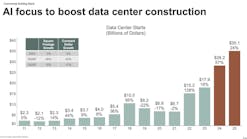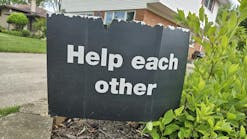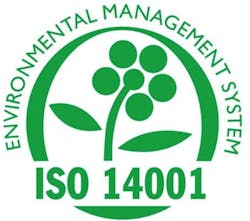As sustainability consultants, our firm assists clients who want to achieve green certifications for their buildings. We work with both new construction and existing buildings to certify them under such rating systems as LEED, Green Globes, and – here in Florida – Florida Green Building Coalition.
In the past, I’ve done several comparisons of those rating systems, here, here, and here, both for HPAC Engineering and for its sister publication, Contracting Business. All of these green building rating systems, along with other recognition programs like Energy Star for Buildings, do just that: they certify a building’s performance. But what about the small-to-medium size business that either can’t (they’re tenants in a building where it’s not feasible) or won’t (they don’t think they can afford it) certify their buildings?
We recently learned about a green business – not building – certification program that will meet the needs of those owners. The ISO 14001 program certifies sustainable businesses. According to Edenark Group, a Palm Beach firm that assists businesses with ISO 14001 certification, it has been the world’s gold standard for sustainability certifications for more than 20 years, with over 350,000 businesses in 150 countries using it. Possibly the biggest challenge to any business, regardless of size, is competitive differentiation. Millennials are now approaching age 40, and fast becoming (or may already be) the largest buying group with the most purchasing power. A number of studies show that being identified as a green business drives both sales and loyalty with those buyers. Some experts have estimated that the total market opportunity for consumers looking for sustainable businesses now exceeds $1 trillion.
There is a lot of evidence to support the idea that having a business or product that is perceived as green has a significant, positive effect on sales. A 2017 study by Unilever, a transnational consumer goods company with more than 400 brands, found that more than 20 percent of the respondents would prefer to buy brands that hype their own sustainability credentials. Within their own company, they found that those brands, “such as Dove, Hellmann’s and Ben & Jerry’s, that have integrated sustainability into both their purpose and products, delivered nearly half the company’s global growth in 2015.” They also found that those brands, collectively, were growing 30 times faster than other Unilever brands!
- New research also finds Corporate Social Responsibility (CSR) policies attract stronger talent. Click here.
Because ISO 14001 is business-centric – not just focused on the building – it is more affordable than typical green business certifications. It emphasizes continuous improvement, including energy efficiency improvements. So, like the other certifications, it also delivers an energy savings benefit. Businesses that can prove such sustainability, through third-party certification, not only post more sales. They also see improvements in the productivity, health, and morale of employees who get to feel good because they’re doing good.
If you’d like more information on ISO 14001, then just let me know. I can point you in the right direction.
A regular contributor to HPAC Engineering and a member of its editorial advisory board, the author is a principal at Sustainable Performance Solutions LLC, a south Florida-based engineering firm focusing on energy and sustainability. He can be reached at [email protected].











